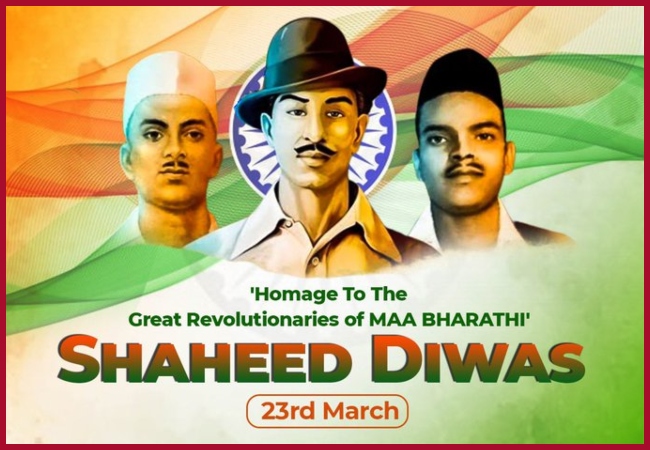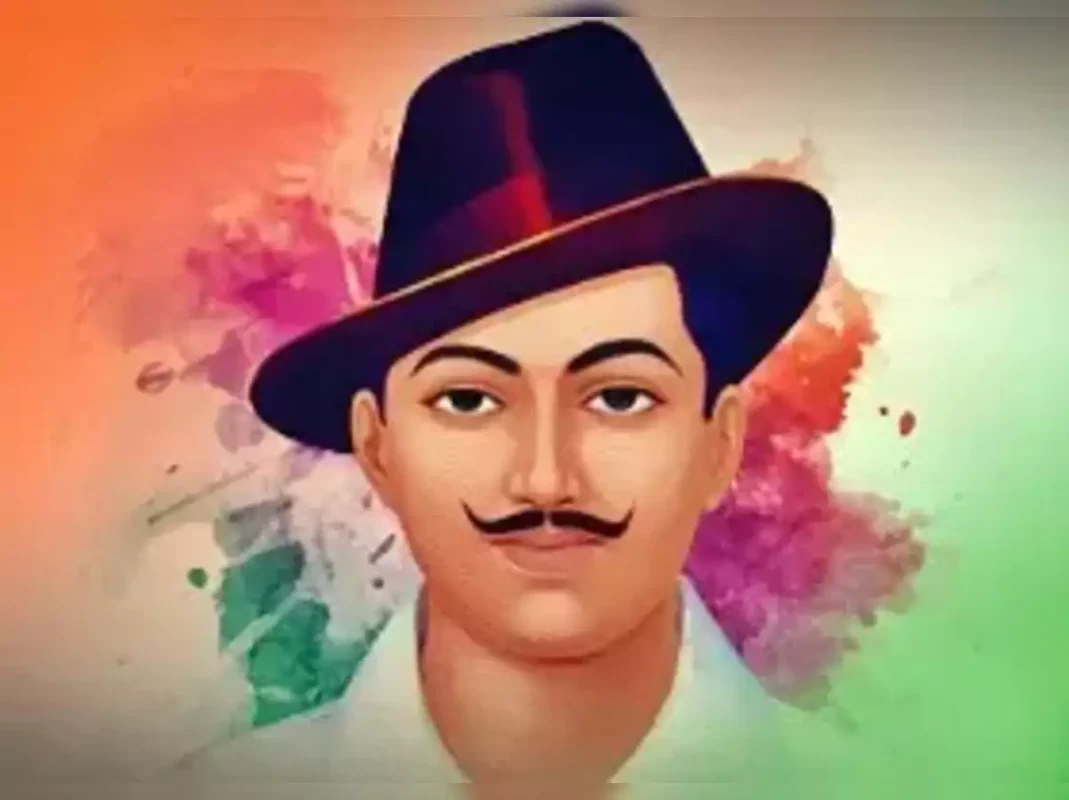Blog
Bhagat Singh Martyrdom Day

Every year, March 23 is observed as Martyrs’ Day as a tribute to freedom fighters Bhagat Singh, Sukhdev Thapar, and Shivaram Rajguru.
- The Day is also known as Shaheed Diwas or Sarvodaya Day.
This Day should not be confused with the Martyrs’ Day observed on 30th January, the day Mahatma Gandhi was assassinated.
Some Facts about Martyrdom Day

- Bhagat Singh, Sukhdev Thapar, and Shivaram Rajguru died on March 23 1931.
- They were hanged to death for assassinating John Saunders, a British police officer in 1928. They had mistook him for British police superintendent James Scott.
- It was Scott who had ordered the lathi charge, which eventually led to the death of Lala Lajpat Rai.
- While Bhagat Singh, who had publicly announced avenging Lala Lajpat Rai’s death, went into hiding for many months after this shootout, he resurfaced along with an associate Batukeshwar Dutt, and the two, in April 1929, set off two explosive devices inside the Central Legislative Assembly in Delhi.
- Allowed themselves to be arrested, while shouting the famous slogan: “Inquilab Zindabad”, or “Long live the revolution”.
- Their lives inspired countless youth and in their death, they set an example. They carved out their own path for independence where individual heroism and their aggressive need to do something for the nation stood out, departing from the path followed by the Congress leaders then.
Life of Bhagat Singh

- Born as Bhaganwala on the 26th of September 1907, Bhagat Singh grew up in a petty-bourgeois family of Sandhu Jats settled in the Jullundur Doab district of Punjab.
- He belonged to a generation that was to intervene between two decisive phases of the Indian national movement – the phase of the ‘Extremism’ of Lal-Bal-Pal and the Gandhian phase of nonviolent mass action.
- From a young age, Bhagat Singh was deeply troubled by the Jallianwala Bagh massacre in 1919 and the unjust execution of freedom fighters like Kartar Singh Sarabha. These events sparked his interest in the struggle for independence.
- Bhagat Singh became involved in several revolutionary activities aimed at ousting the British from India.
- He joined the Hindustan Socialist Republican Association (HSRA) and was involved in a number of high-profile actions, including the bombing of the Central Legislative Assembly in Delhi in 1929.
Role in Freedom Struggle
- In 1923, Bhagat Singh joined the National College, Lahore which was founded and managed by Lala Lajpat Rai and Bhai Parmanand.
- The College was set up as an alternative to the institutions run by the Government, bringing to the field of education the idea of Swadeshi.
- In 1924 in Kanpur, he became a member of the Hindustan Republican Association, started by Sachindranath Sanyal a year earlier. The main organiser of the Association was Chandra Shekhar Azad and Bhagat Singh became very close to him.
- In 1925, Bhagat Singh returned to Lahore and within the next year, he and his colleagues started a militant youth organisation called the Naujawan Bharat Sabha.
- In April 1926, Bhagat Singh established contact with Sohan Singh Josh and through him the ‘Workers and Peasants Party’ which brought out the monthly magazine Kirti in Punjabi.
- In 1927, he was first arrested on charges of association with the Kakori Case, accused of an article written under the pseudonym Vidrohi (Rebel).
- In 1928, Bhagat Singh changed the name of the Hindustan Republican Association to the Hindustan Socialist Republican Association (HSRA). In 1930, when Azad was shot, the HSRA collapsed.
- The strike ended with Das’ death from starvation in September 1929. Two years later, Singh was convicted and hanged at the age of 23.
Bhagat Singh’s legacy continues to inspire people in India and around the world. He is remembered for his courage, patriotism, and unwavering commitment to the cause of Indian independence.



